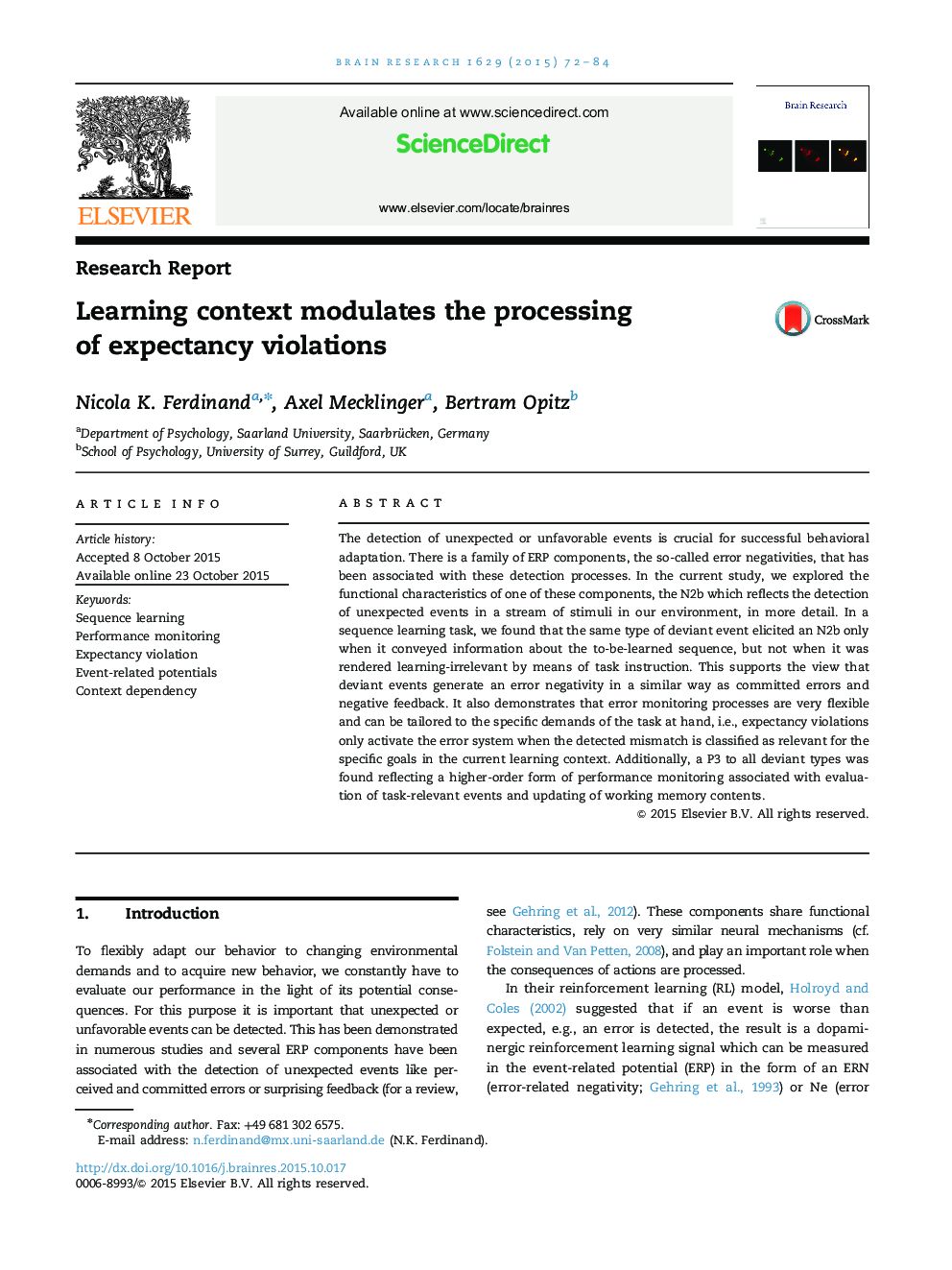| کد مقاله | کد نشریه | سال انتشار | مقاله انگلیسی | نسخه تمام متن |
|---|---|---|---|---|
| 6262770 | 1645516 | 2015 | 13 صفحه PDF | دانلود رایگان |
- N2b reflects the detection of unexpected events in a stream of stimuli.
- the same deviant elicits N2b only when it conveys learning-relevant information.
- but not when rendered learning-irrelevant by means of task instruction.
- expectancy violations activate error system when relevant in current learning context.
The detection of unexpected or unfavorable events is crucial for successful behavioral adaptation. There is a family of ERP components, the so-called error negativities, that has been associated with these detection processes. In the current study, we explored the functional characteristics of one of these components, the N2b which reflects the detection of unexpected events in a stream of stimuli in our environment, in more detail. In a sequence learning task, we found that the same type of deviant event elicited an N2b only when it conveyed information about the to-be-learned sequence, but not when it was rendered learning-irrelevant by means of task instruction. This supports the view that deviant events generate an error negativity in a similar way as committed errors and negative feedback. It also demonstrates that error monitoring processes are very flexible and can be tailored to the specific demands of the task at hand, i.e., expectancy violations only activate the error system when the detected mismatch is classified as relevant for the specific goals in the current learning context. Additionally, a P3 to all deviant types was found reflecting a higher-order form of performance monitoring associated with evaluation of task-relevant events and updating of working memory contents.
Journal: Brain Research - Volume 1629, 10 December 2015, Pages 72-84
